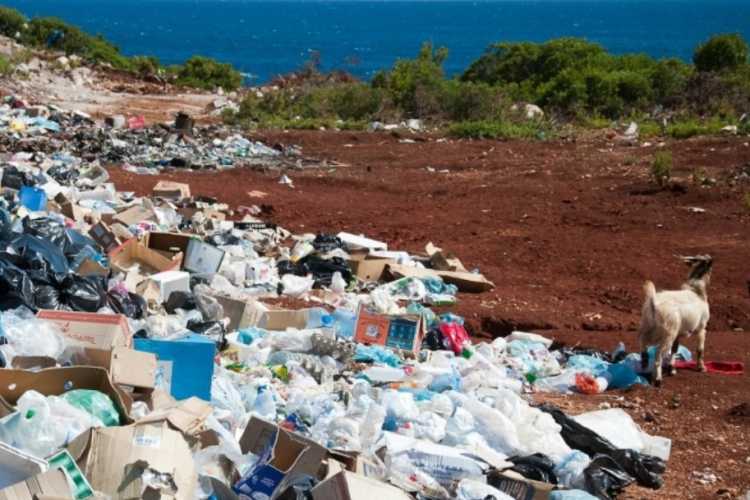
The failed negotiations at the Intergovernmental Negotiation Committee in Busan last week mark a troubling setback in the global effort to tackle one of the most pressing environmental challenges of our age: plastic pollution. Despite growing evidence of the ecological, economic, and human costs of inaction, nearly 200 nations left the South Korean summit without agreeing on a binding treaty to curb the production and proliferation of plastics. Instead, they agreed to prolong deliberations into 2025 — a delay the planet can ill afford.
The stalemate exposes the deep ideological divides between ambitious states and entrenched petrochemical-producing nations, as well as the enduring difficulty of reconciling environmental imperatives with economic self-interest in international diplomacy. At a time when leadership and compromise are urgently needed, Busan delivered only deadlock and discord.
READ | A new manufacturing policy key to India’s economic transformation
The negotiations laid bare a profound ideological chasm. On one side, high-ambition nations, including many African, Latin American, and small island developing states, advocated for a robust treaty that would impose limits on plastic production, phase out hazardous chemicals, and establish binding obligations for compliance. These nations see the plastic crisis as a lifecycle issue, requiring interventions at every stage—from production to waste management.
On the opposing side stood a bloc of petrochemical-producing states led by Saudi Arabia, Russia, and Iran, which insisted on framing the problem as one of pollution management rather than production. These countries resisted production caps and chemical restrictions, arguing instead for voluntary measures and enhanced recycling — a position rooted in their economic reliance on fossil fuel-derived plastics. This ideological divide, compounded by a refusal to compromise, paralysed progress and relegated the treaty to the limbo of unfinished diplomacy.
Structural flaws of consensus diplomacy
The procedural shortcomings of the INC amplified these tensions. The reliance on consensus-based decision-making allowed a minority of obstructionist states to wield disproportionate power, stifling the ambitions of over 100 nations that supported more stringent measures. Calls to adopt voting as a decision-making mechanism — consistent with democratic principles — were ignored, further disenfranchising the majority.
The opacity of the negotiation process led to mistrust, with closed-door sessions excluding observers and civil society representatives. This lack of transparency was particularly troubling given reports that industry lobbyists, including many embedded within national delegations, had unprecedented access to influence the talks. Their presence underscored the pervasive role of private interests in shaping outcomes, often at the expense of environmental and public health priorities.
Implications for plastic pollution control
The implications of this failure are profound and complex. The unchecked production of plastics, which has more than doubled in the past two decades, threatens to overwhelm ecosystems already teetering on the brink. Without binding commitments to cap production, the relentless flow of plastics into oceans, rivers, and soils will only intensify. Marine biodiversity is already under siege, with plastic waste causing entanglement, ingestion, and habitat destruction for countless species. The presence of microplastics in the food chain poses serious risks to human health, including potential endocrine disruption and long-term toxicity.
Economically, the burden of plastic pollution disproportionately falls on nations least equipped to bear it. Small island developing states and coastal economies reliant on fisheries and tourism face mounting costs for clean-up and mitigation. The inequity is further compounded by the refusal of developed nations to provide adequate financial support for implementing treaty obligations, mirroring long-standing divisions in climate negotiations.
From a climate perspective, the failure to address plastic production is a missed opportunity to curb greenhouse gas emissions, as plastics are primarily derived from petroleum. The continued expansion of plastic manufacturing undermines global climate goals and deepens the interlinkage between the plastic crisis and the broader challenge of carbon emissions.
Road to a meaningful plastic treaty
Despite this grim outlook, the path forward demands urgent and transformative action. Breaking free from the consensus trap is imperative; adopting voting mechanisms would empower the majority to implement ambitious measures without being held hostage by a minority of dissenting states. Transparency must also become a cornerstone of future negotiations, ensuring that all stakeholders — particularly those representing affected communities — have a seat at the table.
Furthermore, a lifecycle approach to plastics, addressing production, consumption, and disposal, is non-negotiable for crafting an effective treaty. Binding commitments to reduce production and phase out hazardous chemicals are essential to tackling the root causes of plastic pollution.
The global community must also confront the inequities at the heart of this crisis. Developed nations, as historical contributors to plastic pollution, have a moral and practical obligation to provide financial and technological support to developing countries. This principle of shared but differentiated responsibility is not merely a framework for equity but a pragmatic necessity for achieving global compliance.
The outcome in Busan is a sobering reminder of the entrenched forces that perpetuate environmental degradation in pursuit of profit. Yet, it also offers a call to action for the majority of nations that stood firm in their ambition. As negotiations resume in 2025, the focus must shift from compromise for its own sake to a steadfast pursuit of solutions that align with the urgency of the crisis.
In an era defined by converging environmental challenges, the failure in Busan is not just about plastic—it is a test of humanity’s capacity to act collectively in the face of shared threats. The stakes could not be higher. To delay is to endanger not just ecosystems but the very foundations of life itself. Now is the time to move beyond stalemates and towards a treaty that future generations will view as a turning point in the fight for a sustainable planet.
